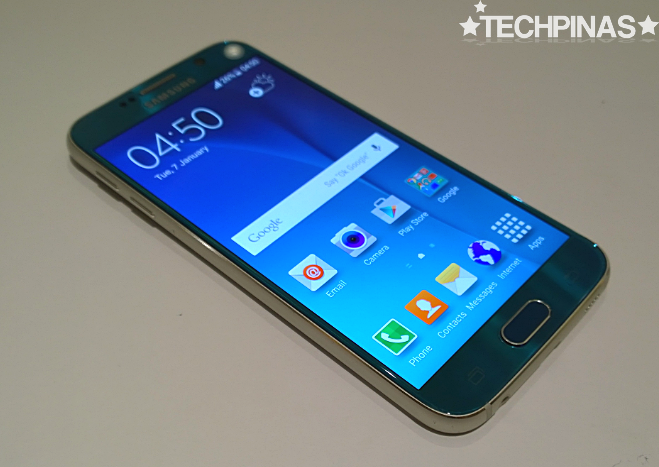Most Powerful Android Smartphones as of Q1 2015 Based on Antutu Benchmark Scores Global Average
The company behind the popular Android handset benchmark measurement application, Antutu, has just released its list of the most powerful handsets as of Q1 2015 based on Antutu 5.6.1 and 5.6.2 scores gathered from January to March this year, covering 160 countries.

The score for each device model represents the average mark for a phone model running on one particular chipset. For instance, if 2 million Meizu MX4 owners ran Antutu on their MediaTek-MT6595-powered phones, the average score from all of those test runs is what's presented on the bar graph above.
"Through click and go test suite, Antutu benchmark measures User Experience, CPU, RAM, 2D/3D graphics, GPU, and I/O performance of any Android smartphone or tablet. You will get accurate device performance score report. The score will update to the Antutu benchmark database and get your device ranking, which you can compare with other Android devices," shares Beijing Antutu Technology. Here's the Benchmark Matrix:
User Experience (UX) - Direct impression on smart device performance with detailed scores.
CPU Tests - Measures how powerful the CPU is, with detailed score points and true hard numbers.
RAM Tests - Real processing ability of the RAM.
GPU Tests - Real graphics processing performance, 3D effects, games, and video play performance.
I/O Tests - A direct score that reflects on the factual input/output (I/O) performance your system permits.
Note, however, that the Antutu benchmark score of a device is determined not just by its hardware configuration but it is also affected by many elements or factors, including system mode, device temperature and running apps as well as other elements. Heck, it may not be the same score every time you test
According to Antutu, these are the most powerful smartphones (with their corresponding internal hardware specifications) as of the first quarter of 2015:









To quote Antutu [source], "Samsung Galaxy S6 and S6 Edge, with no doubt, would be the performance king of the past quarter, scoring over 60000, owe to the strong power of Exynos 7420. Exynos 7420 is manufactured on Samsung’s very own 14nm FinFET manufacturing process, giving it not only significant performance, but also power enhancements." They added, "The only competitor of Exynos 7420 would be Snapdragon 810. But 810 still has some thermal issues which may have certain compromise on performance. That’s the reason why HTC One M9 doesn’t get the dream score. Qualcomm needs to deal with the balance between thermal and performance in the future."
Keep in mind that Antutu Benchmark Score obviously does not account for other relevant factors that consumers usually consider when purchasing smartphones these days, including but not limited to imaging capabilities, design identity, familiarity or sophistication of user interface, build, battery life, and after-sales support.

The score for each device model represents the average mark for a phone model running on one particular chipset. For instance, if 2 million Meizu MX4 owners ran Antutu on their MediaTek-MT6595-powered phones, the average score from all of those test runs is what's presented on the bar graph above.
"Through click and go test suite, Antutu benchmark measures User Experience, CPU, RAM, 2D/3D graphics, GPU, and I/O performance of any Android smartphone or tablet. You will get accurate device performance score report. The score will update to the Antutu benchmark database and get your device ranking, which you can compare with other Android devices," shares Beijing Antutu Technology. Here's the Benchmark Matrix:
User Experience (UX) - Direct impression on smart device performance with detailed scores.
CPU Tests - Measures how powerful the CPU is, with detailed score points and true hard numbers.
RAM Tests - Real processing ability of the RAM.
GPU Tests - Real graphics processing performance, 3D effects, games, and video play performance.
I/O Tests - A direct score that reflects on the factual input/output (I/O) performance your system permits.
Note, however, that the Antutu benchmark score of a device is determined not just by its hardware configuration but it is also affected by many elements or factors, including system mode, device temperature and running apps as well as other elements. Heck, it may not be the same score every time you test
According to Antutu, these are the most powerful smartphones (with their corresponding internal hardware specifications) as of the first quarter of 2015:

Samsung Galaxy S6 - Quad Core 1.5 GHz ARM Cortex A53 + Quad Core 2.1 GHz ARM Cortex A57 + Mali-T760 GPU based Exynos 7420 chipset, 3GB of RAM, 32/64/128 GB internal storage options; Average Antutu Benchmark Score: 67,520

Samsung Galaxy S6 Edge - Quad Core 1.5 GHz ARM Cortex A53 + Quad Core 2.1 GHz ARM Cortex A57 + Mali-T760 GPU based Exynos 7420 chipset, 3GB of RAM, 32/64/128 GB internal storage options; Average Antutu Benchmark Score: 62,373

HTC One M9 - Quad Core 1.5 GHz ARM Cortex A53 + Quad Core 2 GHz Cortex A57 + Adreno 430 based Qualcomm MSM8994 Snapdragon 810 chipset, 3GB of RAM, 32 GB internal storage; (Photo by Android Authority) Average Antutu Benchmark Score: 52,709

Meizu MX4 - Octa Core Big Little Technology: Quad Core 2.2 GHz ARM Cortex A17 CPU + Quad Core 1.7 GHz Cortex ARM A7 CPU + PowerVR H6200MP4 GPU based MediaTek MT6595 chipset, 2GB of RAM, 16/32/64 GB internal storage options; Average Antutu Benchmark Score: 49,305

Google Nexus 6 by Motorola - Quad Core 2.7 GHz Krait 450 CPU + Adreno 420 GPU based Qualcomm Snapdragon 805 chipset, 3GB of RAM, 32 GB internal storage options; (Photo by Android Authority) Average Antutu Benchmark Score: 49,145

Samsung Galaxy Note 4 - Quad Core 2.7 GHz Krait 450 CPU + Adreno 420 GPU based Qualcomm Snapdragon 805 chipset, 3GB of RAM, 32 GB internal storage options; (Photo by The Verge) Average Antutu Benchmark Score: 49,140

Motorola Droid Turbo - Quad Core 2.7 GHz Krait 450 CPU + Adreno 420 GPU based Qualcomm Snapdragon 805 chipset, 3GB of RAM, 32/64 GB internal storage options; (Photo by DetroitBORG) Average Antutu Benchmark Score: 48,695

LG G Flex 2 - Quad Core 1.5 GHz ARM Cortex A53 + Quad Core 2 GHz Cortex A57 + Adreno 430 based Qualcomm MSM8994 Snapdragon 810 chipset, 2GB and 3GB RAM options, 16/32 GB internal storage options; (Photo by DetroitBORG) Average Antutu Benchmark Score: 48,605

OnePlus One - Quad Core 2.5 GHz Krait 400 CPU + Adreno 330 GPU based Qualcomm MSM8974AC Snapdragon 801 chipset, 3GB of RAM, 16 GB internal storage; Average Antutu Benchmark Score: 47,550
To quote Antutu [source], "Samsung Galaxy S6 and S6 Edge, with no doubt, would be the performance king of the past quarter, scoring over 60000, owe to the strong power of Exynos 7420. Exynos 7420 is manufactured on Samsung’s very own 14nm FinFET manufacturing process, giving it not only significant performance, but also power enhancements." They added, "The only competitor of Exynos 7420 would be Snapdragon 810. But 810 still has some thermal issues which may have certain compromise on performance. That’s the reason why HTC One M9 doesn’t get the dream score. Qualcomm needs to deal with the balance between thermal and performance in the future."
Keep in mind that Antutu Benchmark Score obviously does not account for other relevant factors that consumers usually consider when purchasing smartphones these days, including but not limited to imaging capabilities, design identity, familiarity or sophistication of user interface, build, battery life, and after-sales support.
Labels:
Antutu Benchmark Score
Antutu Benchmark Score Comparison
Featured
Most Powerful Android Smartphones 2015
Samsung Galaxy S6
Samsung Galaxy S6 Edge
Versus




.jpg)